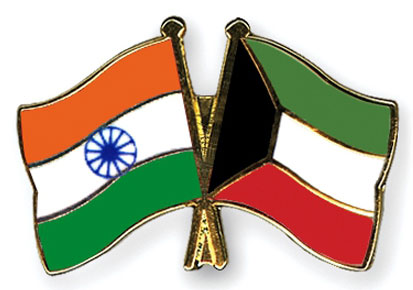UAE, India fix double-tax problem
UAE, India fix double-tax problem
Amended rules lead to less difficult sharing of info linked to earnings deductions
Abu Dhabi: An amended twice taxation avoidance contract (DTAA) between your UAE and India will probably plug the loopholes in a previous contract that enabled taxes authorities in India to sometimes unnecessarily follow non-resident businessmen and people for alleged taxes evasion, say specialists.
“The amended treaty will allow taxes authorities in India to obtain a clearer look at and now they’ll not unnecessarily tax an income which is protected under DTAA rather than liable for taxes in India,” Prakash Chandra Mehta, an Abu Dhabi-based chartered accountant told Gulf Information.
The prior DTAA was nonoperative in India as individuals surviving in the UAE aren’t put through tax and, therefore, Indian individuals couldn’t furnish proof to the Indian tax authorities of any tax deductions in the UAE.
India and the UAE on Mon signed agreements to amend the double taxation avoidance treaty that may pave just how for greater posting of tax-related details.
The amendments to the treaty were signed during a India-UAE Joint Commission meeting in Abu Dhabi presided over by Minister of Foreign Affairs Shaikh Abdullah Bin Zayed Al Nahyan and his Indian counterpart S.M. Krishna.
Global standards
The meeting was preceded by one-on-one talks between your two ministers and accompanied by delegation-level talks.
“The amended DTAA permits exchange of information regarding tax issues,” Indian ambassador to the UAE, M.K. Lokesh informed Gulf Information. With the double taxation avoidance treaty becoming amended, this article on exchange of info has been up to date to take it on par with internationally approved standards.
This enables for banking information and also any information without the domestic tax interest to be shared.
Specific relief
Under the TAX Take action 1961 of India, there are two provisions, Section 90 and Section 91, which provide particular alleviation to taxpayers to save lots of them from double taxation.
Section 90 is for taxpayers who’ve paid the taxes to a nation with which India offers signed DTAA, while Section 91 brings relief to taxpayers who’ve paid taxes to a nation with which India hasn’t signed a DTAA.
When there is a DTAA in place, capital gains arising from the sale of shares are taxable in the country of residence of the shareholder and not in the country of residence of the company whose shares have been sold.
Therefore, an organization resident in the UAE selling shares of an Indian organization won’t pay taxes in India. Since there is absolutely no capital gains taxes in the UAE, the gain will escape all taxes.
“This contract is aimed to improve capital inflows as the global downturn led by the Eurozone crisis offers resulted in investors pulling cash away of Indian equities,” stated Pradeep Unni, the senior relationship supervisor at Richcomm Global Solutions DMCC.
“Rendering it easier for traders across world to get Indian equities could possibly be one method of bridging the [fiscal] gap and DTAA will prompt even more expense flows,” he added




Leave a Reply
You must be logged in to post a comment.